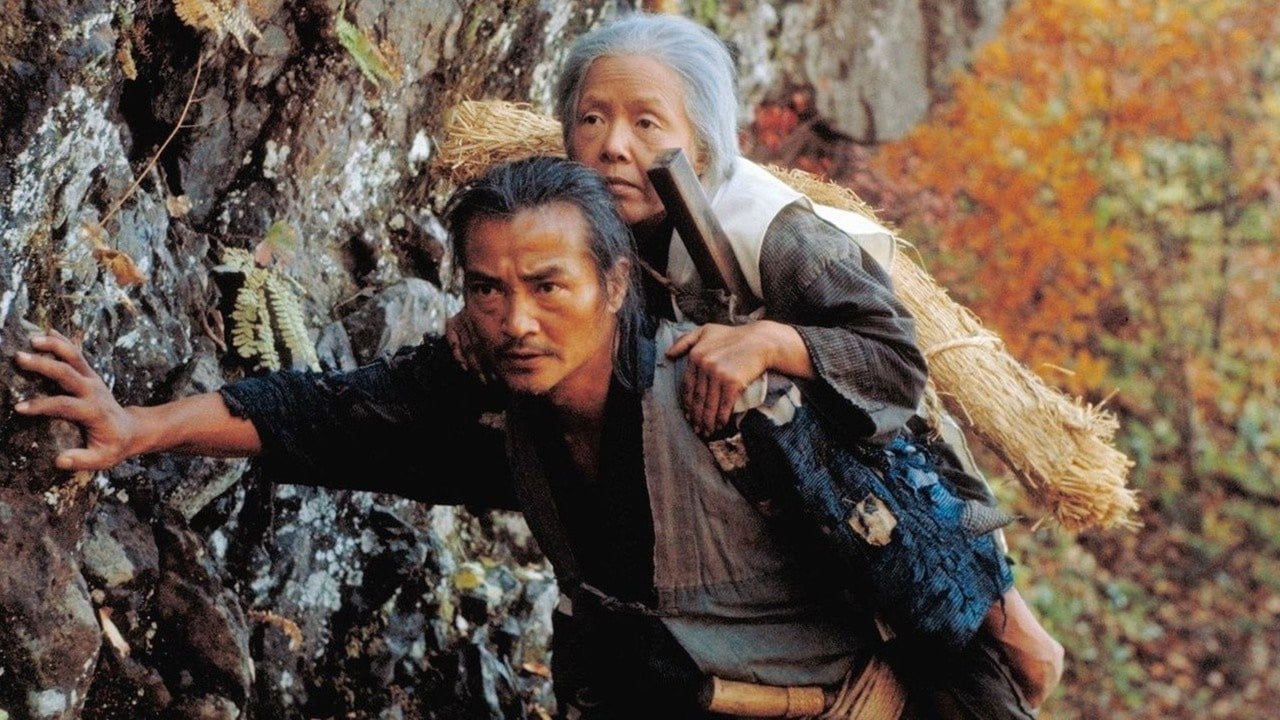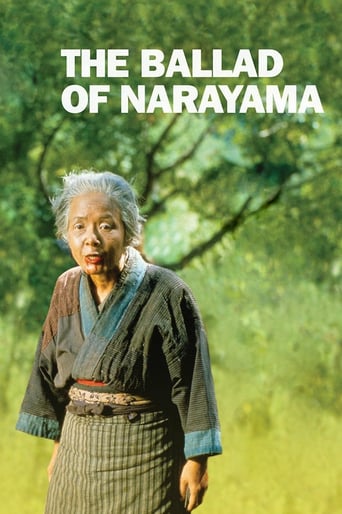

This is an odd movie in which scenes of natural predation are pretentiously interspersed between innocuous, routine events, serving as thematic signposts that attempt to define and legitimize the director's morbid fascination with senseless brutality. The disheveled, unkempt, often filthy characters never gain our sympathy. Even those who come closest ultimately become immersed in the brutality of the story. The kindly grandmother casually tricks her youngest son's pregnant paramour into spending the night with a thieving family whom she knows are about to be executed by the murderous villagers. Her strong-willed son, the only person who briefly displays any palpable sentiment, participates in the execution with little concern even for the grandchild that will never be born. The victims aren't merely killed but captured in nets, thrown in a hole, and buried alive, a brutal twist to the supposed necessity of the horrible collective deed. Later, the healthy grandmother bashes her front teeth out so she'll look the part when it's her time to "go to the mountain." All through the movie, this "final journey" is alluded to as if going off to die on a mountainside up in the clouds, a place of ethereal beauty, is somehow a sacrifice fraught with spiritual significance. Unfortunately, the place where the old people are carried is nothing more than a grotesque, stinking bone yard full of broken skeletons and decomposing bodies, serviced by a flock of fat, greedy crows that pick at the dead and impatiently await their next meal. After hauling his mom up the mountain on a pack-board, the strong son simply leaves her there because she insists once again that is how it must be. Before leaving, he sees his selfish neighbor dropping off his troublesome, disabled father, kicking the terrified old man over a cliff while yelling, "Dad, go to the mountain!" The poor, senile old man, trussed up in a net, goes tumbling down the rocks like a cartwheel, bashing his brains out on the way down. This depressing story is supposed to uplift us? This is "beautiful? It's a real comment on the emptiness of our times that so many here would even begin to believe that. I'm skeptical of the notion that this film was based on fact. It comes off like an exercise in racist propaganda. I may be wrong but I think it doubtful that even primitive and isolated Japanese peasants were that uncaring and brutal.
... View More"Ballad of Narayama" is ultimately a film about survival.Set during the Meiji Period, the inhabitants of a tiny Japanese farming village are forced to embrace extreme tactics to ensure that they stay alive.Male babies are instantly killed with hardly any remorse, while females are usually sold. Stealing food is punishable by death, which we see in a very disturbing scene where an entire family are buried alive due their father's crime.And, ultimately, the elderly are sent to die at the base of a mountain called Narayama when they reach the age of 70.Despite the depressing tone, there is a lot of humor in this film, as well. The songs that the villagers sing about each other are pretty funny, and it's difficult not to laugh at Old Orin trying to knock her own teeth out with a rock.Speaking of Old Orin, the actress who player her (Sumiko Sakamoto) gives a wonderful performance in this film. She had her teeth surgically removed for this role, and gives a realistic depiction of a 70-year-old woman even though she was in her 40s when the film was made."Ballad of Narayama" is indeed a depressing film in many aspects, but it's also filled with humor and offers a better understanding of what life must be like in these types of situations.
... View MoreIt is a shocker, which opens on a villager finding a dead newborn boy on his field His only resentment is: why HIS field was chosen? The fact of murdering a baby doesn't seem to concern anyone in this hunger-stricken small village, population of which must adhere to rather radical if cruel set of regulations in order to secure the survival of their community. Set in the late 19th Century, this film will leave you to ponder the structure of our own society as you'll find many parallels with modern day. An unforgettable experience! This masterpiece is not for those who expect to be entertained. Be prepared to be haunted by the scenes of brutality and sexual fervor long after the movie is over. A must see for every serious cinema admirer.
... View MoreWith beautiful photography and sensitive, elegant acting, this is perhaps the best exploration of what it means to be human. As usual, Shohei Imamura draws direct parallels between the basic drives & instincts (hunger, greed, lust, anger, envy) of people and other animals. I have friends who have walked out of this movie because they found these comparisons so depressing when shown in the desperately poor rural Japan during the late 19th century. What they missed was the core intelligence, caring, self sacrifice, clear thinking and love that enabled that community, and by extension the human race, to survive such difficult times.This sympathetic portrayal of a family in a rural village is the best of ten films I have seen from Imamura, with an epic scale of Akira Kurosawa and all of the subtlety of Ozu.
... View More